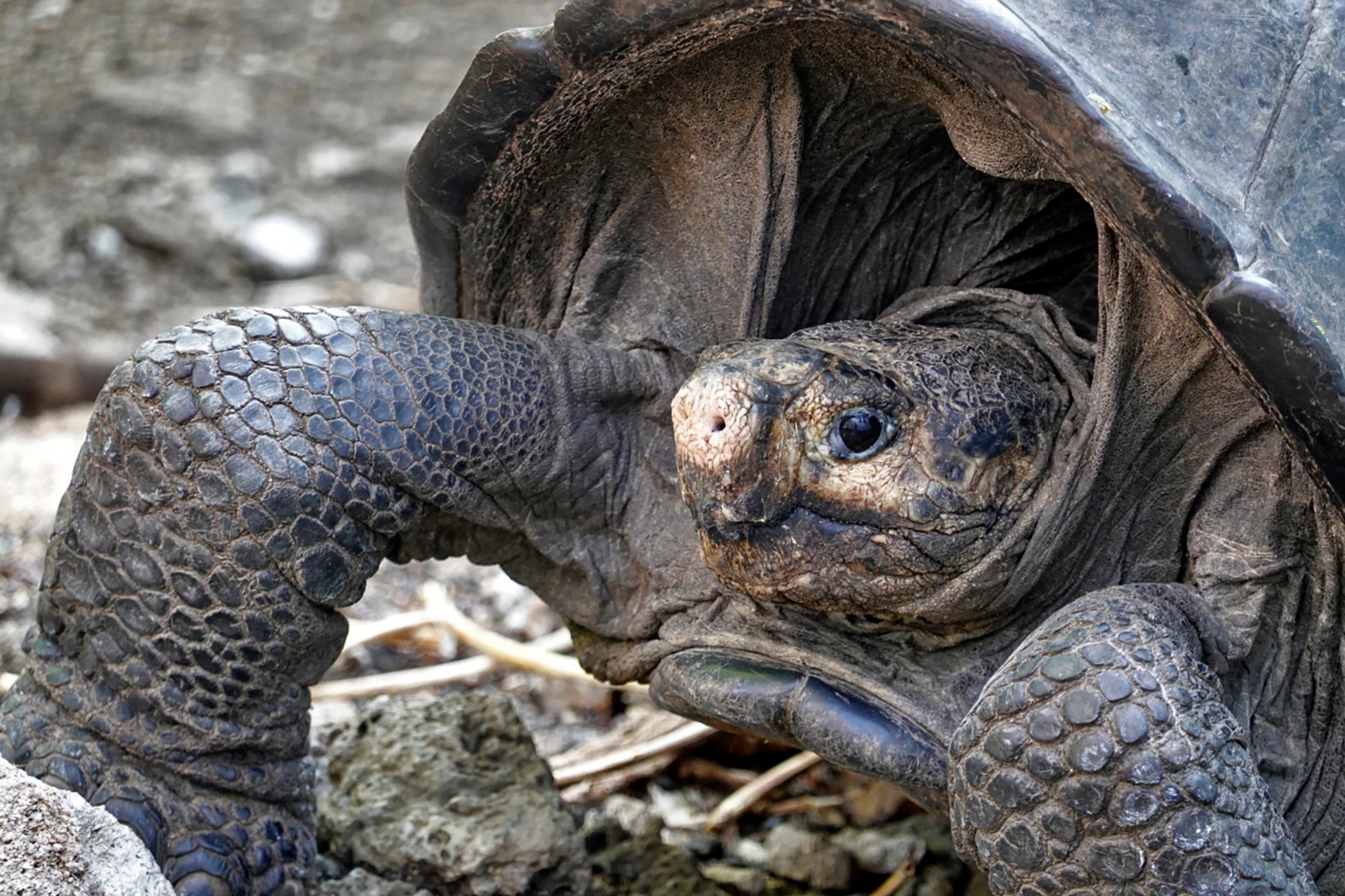Giant tortoise thought to be extinct found in Galapagos
‘Hope is alive’ as the search for more Chelonoidis phantasticus tortoises begins

A giant tortoise found in the Galapagos in has been confirmed to be a Chelonoidis phantasticus, or Fernandina giant tortoise — a native species that was thought to have gone extinct more than a century ago.
A team of scientists and geneticists, led by Dr Gisella Caccone of Yale University, compared the DNA of the female tortoise discovered during an expedition in 2019, with samples taken from the only other known Chelonoidis phantasticus, which were taken in 1906 by a team of researchers from the California Academy of Sciences.
The confirmation that the species is not extinct is being celebrated by conservationists and scientists around the globe.
The Ecuadorian Environment Minister, Gustavo Manrique tweeted: “It was believed extinct more than 100 years ago! We have reconfirmed its existence … Hope is alive”
Dr James Gibbs, vice president of Science and Conservation for the Galapagos Conservancy said, in a statement: “One of the greatest mysteries of the Galapagos has been the giant tortoise of Fernandina Island. The rediscovery of this lost species may have happened just in time to save it. Now we urgently need to complete the search to find other tortoises.”
The Galapagos National Park is preparing to undertake an expedition to do just that. Although there have been no further confirmed sightings of the tortoise, scientists have discovered prints and droppings on Fernandina Island believed to belong to the species, and are hopeful that there are more living in the wild.
This is good news for the elderly Fernandina tortoise, who is believed to be more than 100 years old, and is now at a breeding centre on Santa Cruz Island in California. She may not share the same fate as ‘Lonesome George’ a male Pinta Island tortoise who died in the Galapagos in 2012 — he was the last known tortoise of his species, and left no known offspring.
The director of the Galapagos National Park, Danny Rueda, said: “This discovery undoubtedly renews our hope for the recovery of this species.’”
Currently there are about 60,000 giant tortoises living on the Galapagos islands, where Charles Darwin developed his theory of evolution in the 19th century.
Subscribe to Independent Premium to bookmark this article
Want to bookmark your favourite articles and stories to read or reference later? Start your Independent Premium subscription today.

Join our commenting forum
Join thought-provoking conversations, follow other Independent readers and see their replies